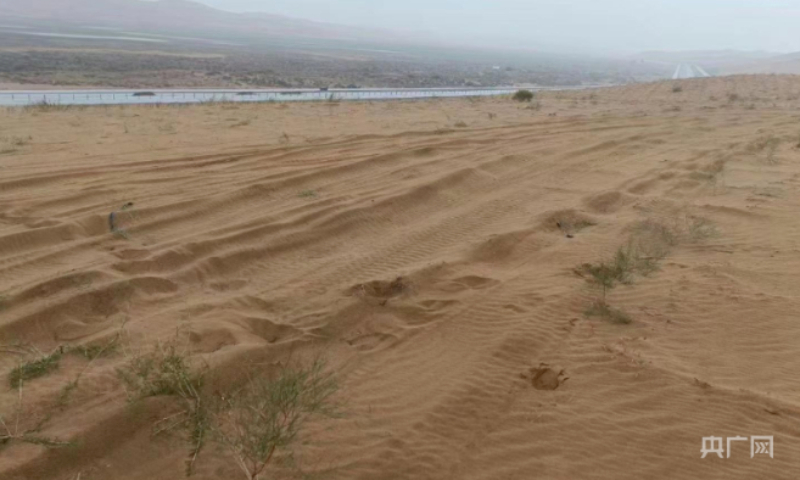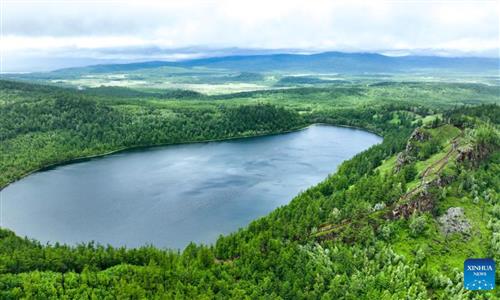
Photo: CNR
More than 4,600 sand-fixing plants were damaged by off-road vehicles in the TenggerDesert, North China's InnerMongolia Autonomous Region during the recent Golden Week, with over 2,000 needing to be replanted, according to a Monday report by China Radio International.
About 500 meters of protective fences were also damaged, the Tengger Desert ecological public welfare base said in a statement. Currently, 21 sections of the protective fencing around the plants have been damaged.
Shanghai-based lawyer Liu Ying told the Global Times on Monday that civil claims for damage may be made against the people responsible.
"In criminal terms, there is the possibility of a charge based on environmental pollution depending on the severity," Liu noted.
Viral images circulated online showing the aftermath of the off-road vehicles traversing the desert, showing ruined plants in the desert of Alxa Left Banner, North China's Inner Mongolia Autonomous Region.
According to a Saturday report by The Beijing News citing a staff member at the base, a large number of sand-fixing hedysarum scoparium plants, which can survive in dry regions, were crushed by the vehicles during the holiday period.
In order to improve the ecological environment of the Tengger Desert and curb the eastward expansion of the desert, the China Greening Foundation (CGF) launched the Tengger Desert locked edge eco-forestry project in 2017, planting sand-control plants including the hedysarum scoparium, at the edge of the desert.
A staff member from the welfare base told The Beijing News that hedysarum scoparium trees typically require meticulous care for three years to ensure their survival.
"Most of the crushed trees had not reached the three-year mark. After being run over by vehicles, their survival rate drops significantly, necessitating replanting. While incidents of vehicles damaging plants have occurred in previous years, this year's incident is the most severe," the staff member said.
Apart from the crushed plants, a substantial amount of litter was left at the scene, the staff member revealed.
The base is enclosed by wire fences, preventing unauthorized vehicles from entering. "There is a road on one side of the base, and the vehicles did not drive along the road, but instead broke through the fence and entered the afforestation area, possibly to take a shortcut," the staff member added.
There were no surveillance cameras in the vicinity of the incident site, making it difficult to identify the vehicles.
During the autumn tree planting season of 2023, efforts will be made to repair the damage, and proper maintenance will be carried out to ensure that the area can achieve the expected ecological outcome, the base said.


